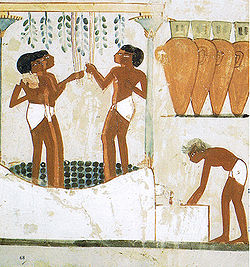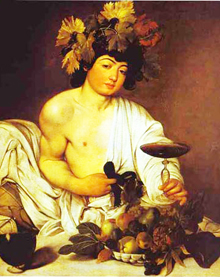Spanish Wines History

Viticulture has been a part of Spain for what seems like forever, and that is not an exaggeration. There's evidence to prove that vines were planted in the Peninsula so far back as the Tertiary period (65 million to 2.6 million years ago!), long before the Phoenicians founded Cadiz and established it as a trading post, around 1100 b.C. The Carthaginians improved the wine making techniques of the Phoenicians when they arrived in the Peninsula, but the real wine history and culture began after the Romans won the Punic Wars against the Carthaginians and the Peninsula became part of the Roman Empire, who named it Hispania.
Wine history from the Romans to the Reconquest
The time Hispania spent under the Roman rule was a golden age for Spanish wine. The level of exportations never ceased to climb, and soon it was a product coveted by everyone. The two main production areas were Tarraconensis near Barcelona in the north and Baetica in the south (which are now called Tarragona and Andalusia). After the decline of the Roman Empire, the barbaric tribes from the north of Europe invaded the Peninsula, and there is little information that accounts for the viticulture and wine history during these times. Most probably, these tribes drank some kind of rustic beer, and any wine they had came from trades or loots.

Things picked up again when the Muslims moved in. Even though the Quranic laws forbids them from drinking any kind of alcohol, wine culture improved in the Peninsula during their stay, specially because many never prevented Christians from producing their own wines. In fact, the Muslims like to eat the grapes that grew on the vines, and it was also quite common to dry them out and consume them as raisins.
The Middle Ages brought monks from different orders from all over the world to Spain, like the Cluny monks and the Cistercians. They played a very important role in the establishment of the better places to produce wine. In fact, many of the current DOs had their origin around this time, because the appearance of a village around the monasteries was normal, ad with time many turned into wine cellars and wineries. The monks also brought new types of vine (different from the Spanish classes of vine) and new techniques. The Reconquest also reopened the wine exportation business and the city of Bilbao positioned itself at the head of it. Most of the wines sold at this time went to the English markets, where they were as highly valued as French wines. All in all, it was a great time for wine history in Spain.
Spanish wines in the New World
The discovery of the New World by Christopher Columbus opened up the exportation options, and the Spanish conquistadors took Spanish vines with them in order to start wine production in the new Spanish colonies. This was the beginning of wine history in the New World. By this time Spanish wines had reached such wordly fame that some of the biggest wine producing cities, like Cadiz, were being sacked for their wine. Also, wine production in the colonies was so common that it started to affect Spanish exportation, which is why Philip III banned the expansion of vineyards in Chile, a decree that was mostly ignored.
The 15th and 16th centuries saw a huge rise in the popularity of Spanish wines, which were being produced in almost every area of the Iberian Peninsula. The Canaries had just been conquered and wine production there had also started to become popular, mainly thanks to the islands strategic location in terms of trade and climate. Canary wines, as they were called, made a name for themselves in every reign around the world and in wine history for their excellent quality. Their downfall started with the Navigation Acts established in 1661 and the creation of the "Canary Company" in 1665, through which the English sold Canary wines at a lower cost, successfully establishing a monopoly on the wine.
And this is just the start! If you want to learn more about the later and more recent history of wine in Spain, why don't you check out our second page on Spanish wine history.
Spanish Wine History
Spanish Wine Regions and DO
Spanish Wine Tours
Top Spanish designations of origin
Best Spanish Wines
Spanish Wine Production
Spanish Wine Types
Spanish Grapes
Spanish Sparkling Wine: Cava
Sherry Wine
Spanish Wine Cocktails
Spanish Wines in the World
Spanish Wine Prizes
Enotourism
Spanish spirits and liquors
Argentina Wines
Chilean Wines
Other sites